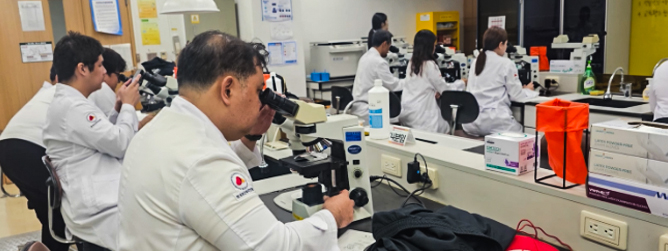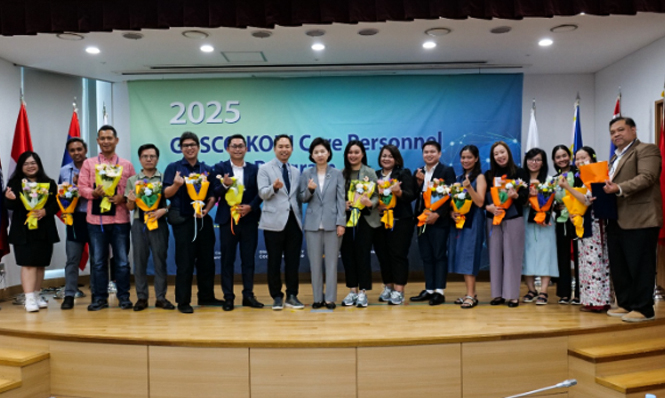
GHSCO Newsletter
September 2025
Volume2 Number3
GHSCO Updates3
2025 GHSCO Core Personnel Training Program
Since its official launch in 2023, the Global Health Security Coordination Office (GHSCO) has successfully conducted three rounds of its “Education and Training Platform” designed to strengthen capacity for infectious disease preparedness and response. The GHSCO Core Personnel Training Program focuses on practical, hands-on learning and site visits to build core competencies for global outbreak response.
In 2024, the training held two sessions on surveillance and laboratory diagnosis, training 20 participants from ASEAN Member States. Trainees were carefully selected based on their professional and relevant experiences, with the final approval by KDCA experts.
In 2025, the 3rd Core Personnel Training Program took place from June 30th to July 10th as a two-week, in-person training program. This year’s training provided advanced hands-on training in laboratory and research, opportunities to develop National Action Plans, and on-site visits to key facilities for infectious disease preparedness and response. Fifteen participants from Lao PDR, Vietnam, Indonesia, Cambodia, Thailand, and the Philippines attended, sharing updates on their national policy development and working with KDCA experts to identify key insights and practical applications.
 Hands-on Practice in Vector Surveillance
Hands-on Practice in Vector Surveillance
As part of the program, trainees visited the Emergency Operations Center (EOC) to learn about its role during public health emergencies, and toured the Biosafety Level 3 (BL3) laboratory to observe facility operations and management procedures. Each trainee developed a National Action Plan tailored to their country’s context, ensuring that training outcomes could be translated into concrete public health policy.
Examples of National Action Plans included:
Cambodia:
Strengthening the Antimicrobial Resistance (AMR) Surveillance
Indonesia:
Enhancing Regional Public Health Laboratory Capacity for Leptospirosis Diagnosis
Philippines:
Strengthening the Sentinel-based Active Dengue Surveillance
Feedback from participants was mostly positive. In the training evaluation survey, trainees rated the overall program 4.81 out of 5, highlighting the value of experiencing Korea’s advanced laboratory systems and gaining practical skills.
Looking ahead, GHSCO plans to provide follow-up support, including on-site field monitoring in the outstanding trainee’s country. Future programs will also be expanded to cover a broader range of areas beyond laboratory and diagnosis.
 Completion Ceremony of the 2025 GHSCO Core Personnel Training Program
Completion Ceremony of the 2025 GHSCO Core Personnel Training Program